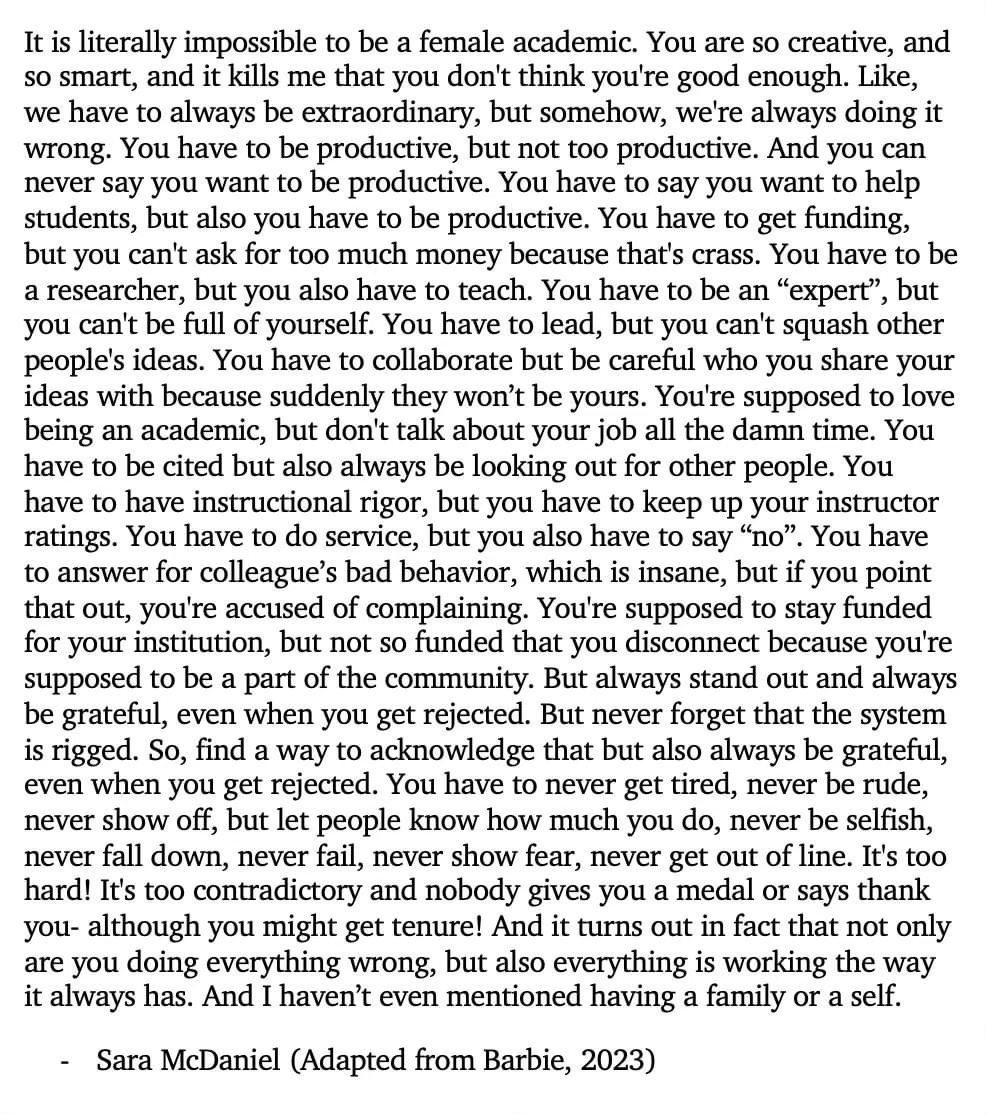Have you seen the Barbie movie? It’s brilliant and spectacular—maybe not perfect, but captures so much of the complexities of women’s impossible roles in society, today and yesterday.
An academic adapted America Ferrara (the mom)’s soliloquy to be not just about women in general, but female academics in particular, and posted it on an academic moms Facebook group I am in (made to be sharable, and with attribution):
When I posted this on my wall, it clearly reverberated. One common theme in the comments is that women scholars work hard, accomplish lots, publish tons, speak out, have a voice, and the result so often is:
Nothing. Silence. A silence that takes your breath away.
Maybe no one cares.
Or they feel so embarrassed by your audibility and visibility they can only cringe and look away.
Or they’re jealous.
Or they feel threatened.
Or it clashes with cultural expectations that bind and blind them.
Or, the worse alternative: criticism, whether about the content or inconsequential related details or something. You’re wrong! and why aren’t you following lots of unspoken and unwritten rules that would keep you quiet, keep you part of the conformist masses? Peers or bosses ignoring good things while ALSO micro-managing any discrepancies. So, minute attention to *perceived* negatives, and zero attention to *actual* positives.
Medieval women would be nodding their heads.
None of this is new, of course. Birgitta of Sweden and other medieval holy women were either completely ignored or tightly regulated — or both — and rarely praised. That’s part of the reason they often disappear from literary and religious history over the last 1,000 years: their voices still make us uncomfortable. But they did find their voices, and they spoke their minds, and they touched so many people. What I find so astounding is when medieval women manage to break through the suffocation of the centuries and still reverberate with us today, as compellingly as with their contemporaries. This is why I’m writing Visionary: The Woman Who Changed Medieval England: because Birgitta of Sweden did have an enormous impact on society, and women today deserve to hear her story. Visionaries like her and others were heard, and praised, and loved, just as much as they were ignored, and controlled, and silenced. These prophetesses withstood enormous crushing criticism of every single word and every smallest action in order to continue to proclaim and document their message.

So, I think about these women from the past when I feel unmotivated to write or speak, or I feel ignored or needlessly criticised. I think about their champions who risked everything to support them and cheer them on—and about the champions I have, for whom I am so grateful. I try to see them all as models. I try to take risks to speak and to support other women who dare to speak.





